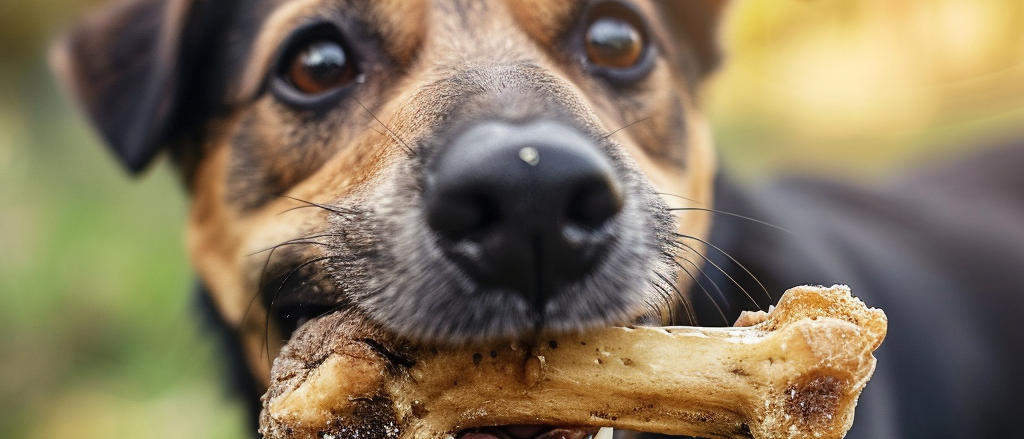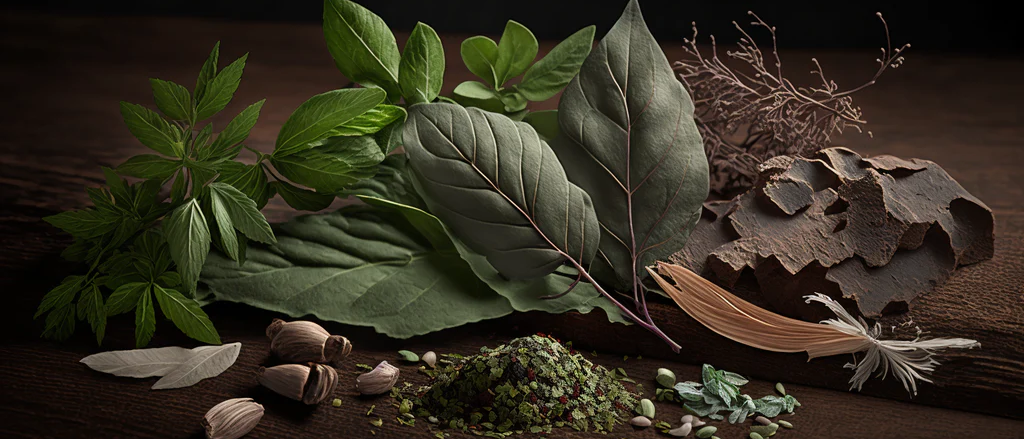Bad Breath In Dogs - Causes, Treatment and Home Remedies
Share

With gum disease and poor dental health affecting most dogs by three years of age, an unhealthy, bacteria ridden mouth is a massive problem in dogs today. With gum disease creating inflammation in the dog's mouth it means that the dog's system is in a state of inflammation and the immune system is constantly engaged. This gum disease is caused by the plaque and tartar on the teeth irritating the gum line. Plaque is a micro-colony of thriving bacteria and is something that should be kept under control.
When it is not under control, it causes undue stress to a dog's body and can lead to health problems. Luckily bad dog breath serves as an indicator that something is amiss, giving you the chance to rectify it!
What is the solution to bad dog breath?
With many vets believing that daily brushing a dog's teeth is the solution to bad dog breath, we believe that the first step should be looking at a dogs diet. Certain things should be excluded from a dogs diet, and certain things should be included that will have a positive effect not only on their teeth and bad breath but also on their overall health. Help to avoid painful, and costly, dental scrapes and see the changes in your dog's health with just a few simple changes.

Raw Bones are not only packed with essential vitamins and minerals, but they also act as a natural dental scrape. With many people (some vets included) believing that raw bones should be avoided at all costs, we believe that the benefits far outweigh any perceived dangers. To avoid any of these dangers, an appropriate sized raw bone should be chosen for the dog, and it should be supervised to minimise the risk of choking or any tooth damage. It is also advised to refrigerate raw bones between chewing sessions. Get those bones and watch your dog happily chew away!
These following herbs help mask the smell of the thriving bacteria in a dog's mouth as well as helping to reduce their numbers and formation. For proper results, the cause of the bacteria, which is the diet feeding them, needs to be tackled.
Parsley
Simply sprinkle dried parsley into the dog's feed. Easy to use and very effective.
Peppermint
Freshen up their breath with a nice minty smell. Unfortunately, many dogs do not like the taste of Peppermint so is hard to administer (dogs will not like the taste of this, good luck with that!)
Sage, Tea tree or Clove
These will all eliminate the bacteria in the dog's mouth, preventing the plaque from forming. Unfortunately, it is difficult to feed to dogs due to the taste.
Eucalyptus
This is an excellent way to eliminate bad breath as it reduces the volatile sulphur compounds.
While the above suggestions will eliminate bad breath they are unfortunately only hiding the problem and not tackling the cause. For the bad breath to be eliminated completely, the cause needs to be tackled. As plaque is formed from the thin colourless bacteria that feeds on complex carbohydrates.
WHAT TO EXCLUDE IN A DOGS DIET TO KEEP THE MOUTH HEALTHY?As bad breath forms in a dog's mouth through bacteria, the best way to tackle these bacteria is by eliminating what they feed on from the dog's diet and introducing the things that help keep these bacteria at bay.
Dry Dog Food and Dental Treats
Most dry dog food is starchy, due to the inclusion of cereals, and leads to plaque build-up on the teeth. As plaque feeds on carbohydrates that hang around in the dog's mouth most dry dog food provides the perfect fuel for this. Many people think that the kibble provides an abrasive action cleaning the dog's teeth yet do not wonder why their dog still has the plaque in their mouth. Kibble, nor dental treats that rely on abrasion, do not provide the abrasive action to clean the plaque from dogs teeth but the fuel to form it. The food that you are feeding your dog is the first thing that should be looked at when trying to keep their mouth healthy, if it is dry dog food or a treat, make sure that no cereals or sugars are added.
Cooked Bones























